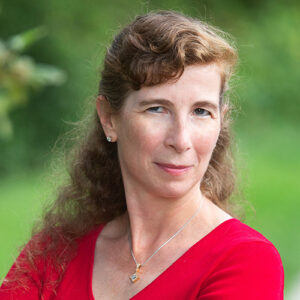Adams: Let’s Put Every Student in a Gifted & Talented Lottery. We Could Expand Opportunity to All Kids — and Show How Low a Bar We Actually Set

New York City Mayor Bill de Blasio has long claimed to be unhappy with his elementary schools’ gifted and talented programs. Though the majority of the city’s 1 million public school students are Black and Hispanic, most of those selected for G&T programming are white and Asian. That’s one of the practices indicted in a racial-inequity lawsuit filed March 9 looking to change how students are admitted to all levels of New York City schools.
Nearly every year since taking office, de Blasio has attempted one tweak or another in order to produce the perfectly proportional racial balance he says he wants. His latest offering, however, takes a noticeable step backward, all but ensuring near-identical demographics for 2021 admissions as those of past years.
After his Panel for Education Policy voted down the testing contract that had been used to assess kindergarten through third-grade kids for G&T, de Blasio announced a new evaluation method: Students attending universal pre-K would be recommended for G&T programs by their teachers. Those in private nursery schools or not attending school at all could sign up to be interviewed by a member of the Department of Education’s Early Childhood Team over Zoom. No new rising first- through third-graders would be tested. Any G&T schools that had seats for the fall in those grades would reach out to families who had been waitlisted the previous year.
When the new plan was first announced, I wrote on New York School Talk:
G&T is a self-selected program. If a parent thinks their child belongs in G&T, if a parent puts in the work to prepare their child for taking the G&T test, then the child will likely do fine in G&T, especially if their parents continue to get them tutored, which is how most “high-performing” schools get their results, anyway. In other words: Any child from a family who makes the effort to get them into G&T, will do fine in G&T.
Under this year’s new system, different individual children may score G&T seats (especially since it doesn’t seem there will be any preference for those who score in the 99th percentile versus those who score in the 90th, as there was in the past), but they will still come from an identical pool.
Right now, students are assigned seats based on a random lottery (though siblings receive priority), limited only to those students who apply.
But what if …
The district held a lottery for all students in the public school system, without requiring them to opt in?
Those who were selected could be offered a seat in an accelerated citywide school, or in a district enrichment program. They wouldn’t be obliged to take it. After all, parents regularly turn down G&T for a dual-language program or a progressive methodology, or just a school closer to home.
But, at least with this approach, families who never even knew there was an accelerated or enriched school track would have a shot at these options.
Based on current school demographics, statistically speaking, more offers would go to Black and Hispanic students, those who qualify for free and reduced-price school lunch and English learners.
When I suggested a variation on the above — letting parents opt into whichever learning method they thought would work best for their child — the pushback I received included:
What if we just don’t know if our kid is capable of accelerated programs? Won’t many more students be in misplaced accelerated classrooms?
Good news!
What Americans call “gifted and talented” education would be considered general education almost anywhere else in the world. This means any child, if paired with a good teacher — and, since 97 percent of NYC teachers are deemed either “effective” or “highly effective,” that’s a given — can do the work we currently consider accelerated.
According to NPR, in some classes as many as up to 50 percent of children are performing above grade level. There’s no question that the bar is set way too low for all of America’s kids.
How do we prove that?
Why not by selecting students for “accelerated” programs at random? This way, we’d have concrete data about how well students actually can do America’s version of “accelerated” work.
And once we have that, wouldn’t it stand to reason that all students should be assigned to it, sans label?
Right now, New York City’s plan for equity in education ends at acknowledging that there are “good” schools and “bad” schools, and simply trying to change the algorithm for who gets access to which.
But what if all schools could become “good” via all students having access to the “accelerated” curriculum that the city currently insists on doling out based on lottery, as if education were a zero-sum game? (Consider the Success Academy network, which doesn’t screen for admission, accepts all students by lottery and, by virtue of its curriculum and pedagogical approach, not only shrinks the achievement gap, but even outscores some G&T schools.) Education is one of the few things that doesn’t need to be a zero-sum game. One child receiving an “accelerated” education does not stop another child from receiving the same.
Could every child be capable of keeping up with a rigorous, accelerated curriculum without being screened in advance?
Perhaps this is our chance to find out. And to improve education for every child in New York City as a result.
Alina Adams is a New York Times best-selling romance and mystery writer, the author of Getting Into NYC Kindergarten and Getting Into NYC High School, a blogger at New York School Talk and mother of three. She believes you can’t have true school choice until all parents know all their school choices — and how to get them. Visit her website, www.NYCSchoolSecrets.com.
Get stories like these delivered straight to your inbox. Sign up for The 74 Newsletter

;)

